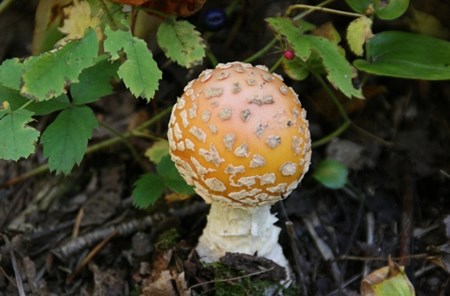From new sources of fuel to innovative medical applications, the Boreal Forest may yet hold many secrets for Northern Ontario, secrets which Australian biochemist Dr. Robert Dekker is looking to uncover.
As the founding director of Lakehead University’s newly minted Biorefining Research Initiative (BRI), Dekker is heading up an ambitious project to take a closer look at the forest’s feedstock for various value-added applications.
“The Boreal Forest is a unique place in the world to study the microbial species that live in harmony with the plants and the soil,” says Dekker.
“I’m quite certain there will be microbes never before characterized. I think amongst them there may be something useful that can develop into bioproducts.”
With $6 million in funding received from the provincial government in 2007, the project is broken up into three distinct streams.
One will target biological conversion, which seeks to convert the cellulose content of wood into sugar to produce ethanol or other compounds, which can then be further refined to produce such things as “green” plastics.
The chemical stream is already in progress at Lakehead, which looks at the gasification and liquefaction of natural forest products to produce hydrogen and various biofuels.
The natural products stream will focus on studying the potential for microbes in forest biomass to play a part in the development of new products. This includes items with medicinal or environmental value.
While the Northern Ontario School of Medicine is already looking at various plants in the area for their own medical applications, Dekker says there will be no overlap as the BRI is concentrating on bacteria and fungi for those purposes.
Many of these initiatives will require strong levels of collaboration from the forestry industry, says Dekker. Still, he anticipates being able to achieve many of these partnerships given the many links the university has established through many past research projects.
Currently, the project is being overseen by a three-person team, made up of Dekker, as well as Dr. Wengsheng Qin, who holds an Ontario Research Chair in plant biotechnology.
Also having recently joined the team is Dr. Weli Floriano, an expert in computer modeling from California State Polytechnic University. She will make use of the computing and biomedical imaging facilities at Lakehead and at the Thunder Bay Regional Research Institute to design and test various molecules and enzymes.
The team will work in conjunction with various internal departments and faculties, making use of existing resources and projects.
Dekker himself is no stranger to uncovering the many mysteries of the forest, having dedicated the last 40 years to digging up and digging through the biological secrets of biomass.
Over the last 15 years, he’s researched particular types of fungi across Australia and Brazil, one of which he discovered to have unique properties for remediating heavily polluted soil.
After converting it to another form, he further discovered that it held medicinal properties which lowered glucose levels and blood-cholesterol levels in test animals.
More recently, it was also found that the organism produces an enzyme that may help create biodiesel from soybean oil or canola oil.
It’s this kind of expertise and eye-opening discovery Dekker hopes the BRI team will bring to Northern Ontario, and his hopes are high.
“We’ve recruited a good team of international repute, and I think it’s just a case of using our intellectual resources to see what we can come up with, and to be innovative. Who knows what we’ll discover in the Boreal Forest, which is a real pharmacopia.”




